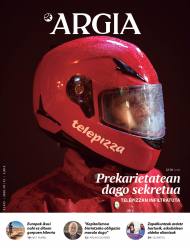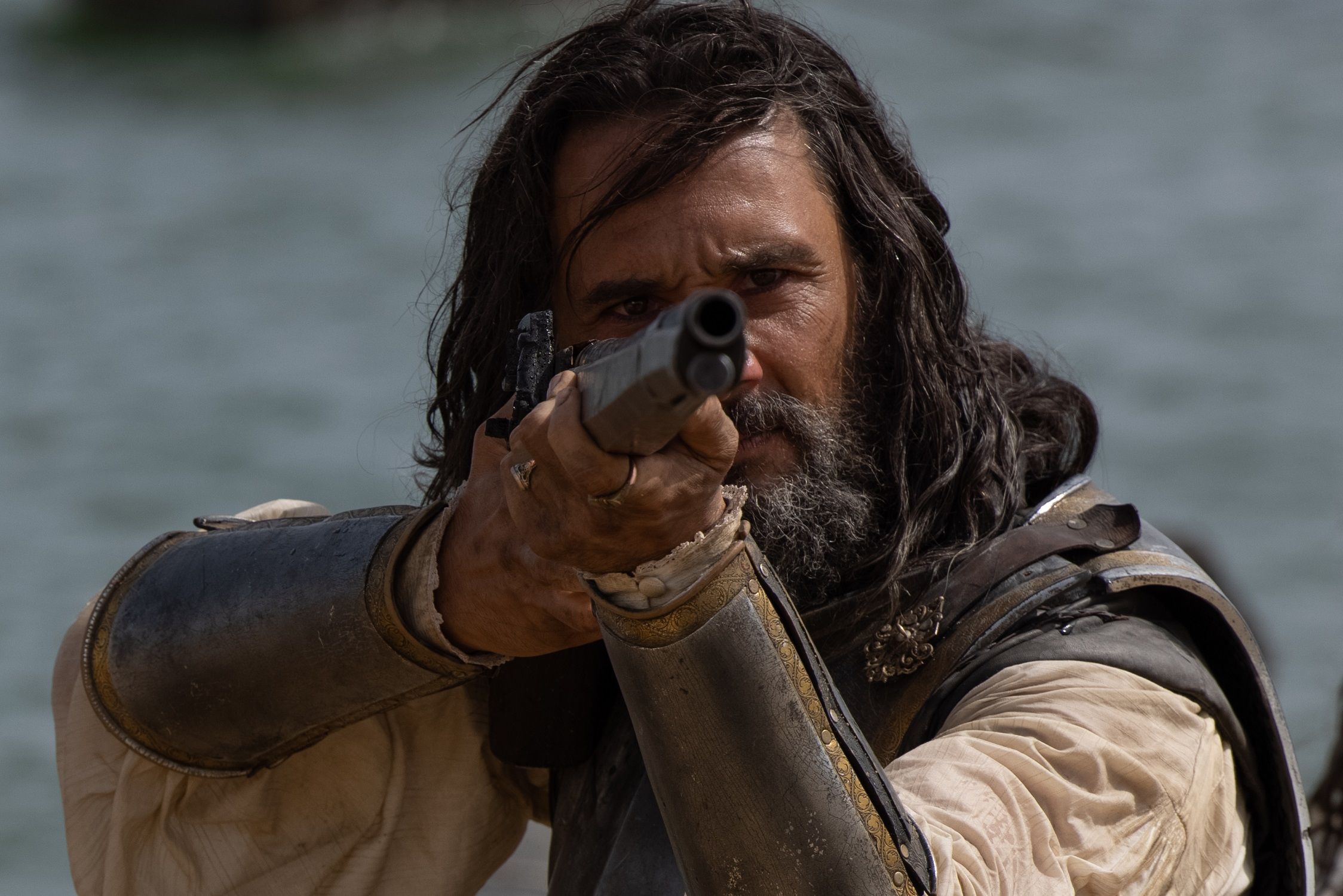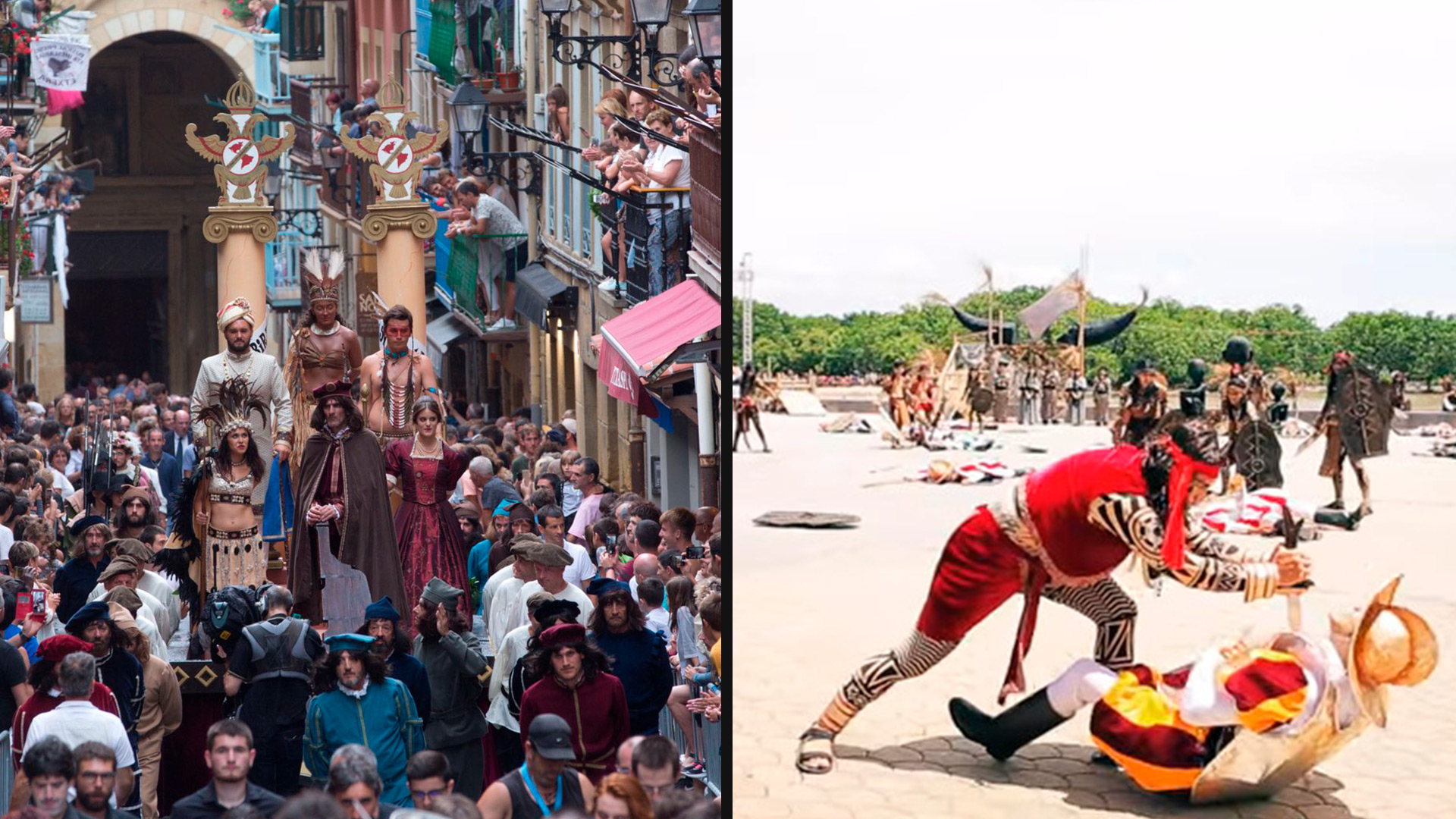To those who turned around the world
- Vicente L. Rafael is a professor of history at the University of Washington in Seattle, United States. He has written in the Philippine Rappler media about the debate that has aroused the film produced and subsidised in the Basque Country on the Elkano World Tour. It is a film that hides the cruelties of the Spanish Empire and recirculates the unfortunate colonial racist stereotypes. All the Basque version below.

Recently, Disney has begun to introduce notes into its classic animated films recognizing that they have painful stereotypes and racist representations. The Spanish animated film to celebrate the “first” Return to the World of Elkano and Magellan brings me to the forefront of the debate that has aroused in the Philippines.
Some have called for the film to be censored. Others, especially some Spanish and Filipino writers, believe that the film does not harm. The indignation of the Filipino nationalists is out of place. I agree. In 1521 there was no Philippines and Lapulapu [national hero of the Philippines for the alleged death of Magallaes] was not a patriot but a leader in the struggle with the head of the neighboring tribe, Humabon. The fact is, Humabon became an ally of Magellaes. Lapulapu was not in the battle of Mactan [Magellan was killed], he did not fight for nationalist reasons, but for locals.
But the apologists of the film have stressed that it is just a cartoon, a naive adventure movie in which the protagonist is placed in the role of hero or miserable. I remember Rudyard Kipling's children's books, like Gunga Din or the jungle book: racist, of course, but finally, absurd fun. Magellan and Elkano are presented as a happy, perhaps competitive person, but in the background they are good guys traveling the world, just like tourists. They're not really colonizers, they're just "salespeople of species." The women of the people of origin will feel a natural attraction for these beautiful and friendly European targets. The main role of these women is to give the film the traditional romantic hook.
Magellan and Elkano were part of the imperial project that Spain was developing to dominate the world
It is like saying that Columbus was not a colonizer and a slave, but a person who was doing a favor to the King of Spain a.Sorprendentemente, it is about not understanding the Spanish imperial project. In short, the Magellan expedition 1519-1521 coincided in time with the war of Hernán Cortés against the Aztecs and the subsequent colonization of Mexico. Before that, it was the Reconquista that violently expelled all the Jews and Muslims, then the colonization of the Canary Islands, and then the colonization of Puerto Rico, Cuba, and Panama, the first European that saw the Pacific in 1513, the Vasco Núñez de Balboa. It should be added that the large parts of France, Italy or the Netherlands, which today make up the west of Europe, were under the control of the Spanish Empire.
It is important to make the following clear: The expedition of Magellan was the beginning of the Spanish colonization of the Pacific, after which several attempts were made to establish permanent colonies in the islands, a process that culminated in the landing of Miguel López Legazpi in Cebu in 1565. At the same time the Spaniards were finishing the Peruvian conquest (started in 1532-33 it lasted until the 1570s).
In other words, the expedition of Magellan and Elkano was part of the imperial project that Spain was developing to dominate the world. The Portuguese were directly involved in this task. The Portuguese established their colonies on the shores of West Africa, then through the Indian Ocean, and then to Malacca, Taiwan, Japan and Spice Islands (until the temporal union of the two crowns in the 16th century). If that's not a colonial project, then I don't know what it is. (See E.O. Imperial Spain by Elliot, 1469-1716 or Empire by Henry Kamen: How Spain Became a World Power, 1492-1763 books, among other sources).
The fact that the animated film appears as a harmless celebration of the heroism and bravery of the Spaniards has provoked a conflict that is nothing extraordinary for Spanish historians. In fact, the archives of the General Archives of the Indies continue to call the first Spanish colonizers “quixotes of the ocean”, continuing to nationalize and romanize Spanish imperial history. The Empire remains a way of life for a large part of Spain, although most of its imperial (not all) possessions are destroyed. However, like Disney, Spanish filmmakers should also pause for a moment and admit that they have written on a partisan basis a story that hides the cruelties of the Empire and recirculates the unfortunate colonial racist stereotypes. That, of course, will never happen, as neither will the King of Spain, who will never apologize to Mexico for its past events.
Suggestion: Perhaps the distributors (rather than the filmmakers), following the Disney model, can add to the film: “Note: the facts described here are systematic distortions of historical truth. They have racist stereotypes and it is possible that the Filipinos feel offended, while feeding Spanish nostalgia towards the empire, a nostalgia that systematically avoids the violent consequences that have occurred on the people of origin under imperial occupation.”
Two friends offered a small rap performance in the plaza and musutruk, after a simple popular meal. With a song, we were reminded that a neighbor, a young man, recently passed away. Money had to be raised to return the body to its hometown. Oh, that mother of mine! Your child's... [+]
Unconscious day-to-day exercise has become a topic during your stay in the Basque Country. I haven't been there for many days and I've been squeezing my breath several times... I'm an observer trying to find and rediscover my people. If I didn’t want to see things before or if... [+]

















